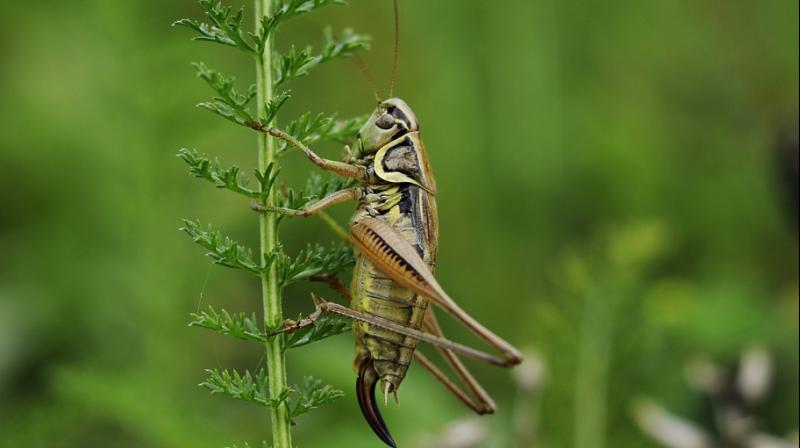Adding crickets to your diet can be good for your gut: Study
Researchers say there is growing interest in edible insects.

Washington: Eating cricket insects can now help support the growth of beneficial gut bacteria, which in turn reduces inflammation in the body, finds a study.
"There is a lot of interest right now in edible insects," said a lead researcher Valerie Stull. "It's gaining traction in Europe and in the U.S. as a sustainable, environmentally friendly protein source compared to traditional livestock," Stull added.
More than 2 billion people around the world regularly consume insects, which are also a good source of protein, vitamins, minerals and healthy fats. The researchers were interested in documenting the health effects of eating them for the first time via clinical trial.
"This study is important because insects represent a novel component in Western diets and their health effects in human populations haven't really been studied," said another researcher, Tiffany Weir.
"With what we now know about the gut microbiota and its relationship to human health, it's important to establish how a novel food might affect gut microbial populations. We found that cricket consumption may actually offer benefits beyond nutrition," Weir added.
Researchers observed that raising insects for protein not only helps protect the environment but also offers a more healthy option than meat in many wealthy countries with high-meat diets.
Crickets, like other insects, contain fibres, such as chitin, which is different from the dietary fiber found in foods like fruits and vegetables.
Fiber serves as a microbial food source and some fiber types promote the growth of beneficial bacteria, also known as probiotics. The small trial probed whether insect fibers might influence the bacteria found in the gastrointestinal tract.
For two weeks, 20 healthy men and women between the ages of 18 and 48 ate either a controlled breakfast or a breakfast containing 25 grams of powdered cricket meal made into muffins and shakes. Each participant then ate a normal diet for a two-week "washout period."
For the following two weeks, those who started on the cricket diet consumed a controlled breakfast and those who started on the control diet consumed a cricket breakfast.
Every participant served as their own control for the study and the researchers were blinded with respect to which diet each participant was on at any given time.
Researchers say that an increase in the abundance of beneficial gut bacteria like Bifidobacterium animalis, a strain called BB-12 which is linked to improved gastrointestinal function.
"This very small study shows that this is something worth looking at in the future when promoting insects as a sustainable food source," Stull said.
Stull further said that "Most of the insects consumed around the world are wild-harvested where they are and when they are available."
"People love flying termites in Zambia, which come out only once or twice a year and are really good; they taste like popcorn and are a crunchy, oily snack," she added.
The study was published in the Scientific Reports journal.

